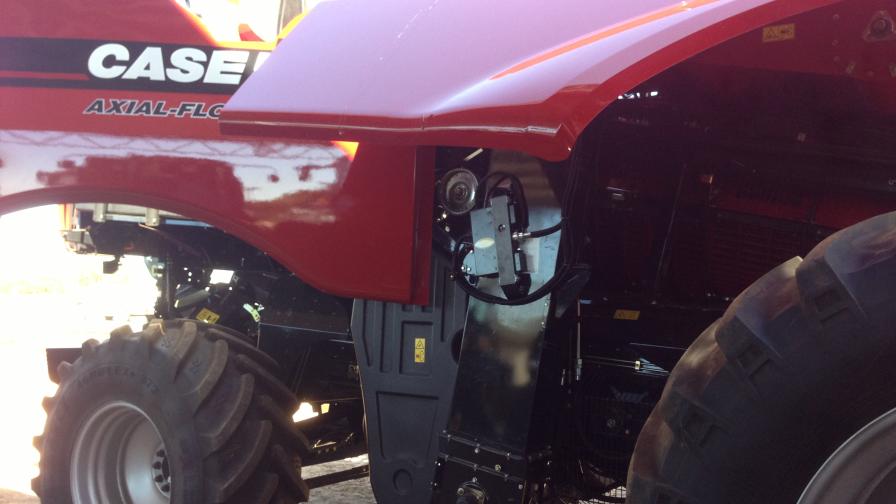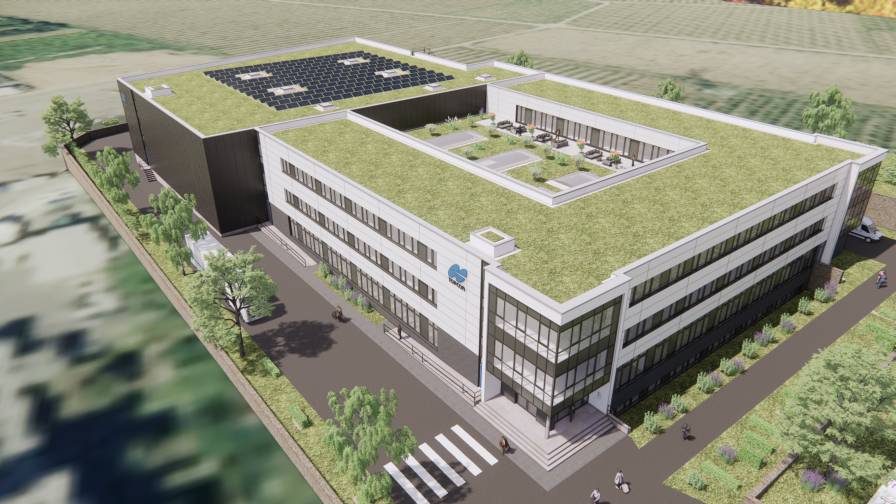How Making Farming Equipment Lighter Can Improve Efficiency
Mechanized agricultural equipment has dramatically improved farming efficiency — but at the risk of impacting crop yield through increased soil compaction. These heavy-duty machines also consume more fuel, increasing production costs and causing more environmental harm. Switching to lighter machinery can address these challenges, optimizing field performance and minimizing ecological impact.
Farming Equipment Is Getting Heavier
Modern food production equipment has gotten significantly bigger and bulkier over the last 60 years. For example, the average weight of a combine harvester increased from 8,800 lbs in the 1950s to over 79,000 lbs in 2020. Some farming machinery today even weighs more than the heaviest dinosaurs to walk the planet.
While these innovations have helped ramp up crop cultivation to meet increasing demands for food from a growing population, the weight increase also puts soil under more pressure. This strain escalates the risks and associated repercussions of subsoil compaction.
Soil compaction occurs when the weight of machinery presses particles together, reducing pore space between them. Compaction makes it more difficult for water and nutrients to reach the deeper soil layers, limiting their ability to support optimal crop growth. Additionally, it forces plant roots to exert greater effort to push through the compacted layer. Left unchecked, soil compaction from heavy farming equipment can reduce corn yields by as much as 50%, especially in wet weather conditions.
MORE BY ELLIE GABEL
Integrating Data-Driven Solutions for Fine-Tuned Climate Control in Indoor Farming
Carbon Capture Technologies: Optimizing CO2 Utilization to Reduce Emissions in Agriculture
Logistical Complexities
In addition to the increased fuel consumption by heavier machinery, farmers also have to spend more on storage facilities and maintenance. In some instances, there’s a need for qualified workers to operate these machines. Meeting these demands may prove burdensome, especially in rural areas where access to the necessary infrastructure and skillset may be lacking.
Dependence on Fossil Fuels
Another disadvantage of heavy mechanized equipment in agriculture is the dependence on diesel and petrol resources, resulting in high greenhouse gas emissions. These increased levels of pollution create considerable environmental harm with long-term impacts.
Making Farm Machinery Lighter
Agricultural equipment is typically heavier than ever due to the increased use of steel and cast iron in their manufacture. These materials are favored for their durability and versatility in various engineering applications. However, they’re also super heavy. Swapping out these weighty metals for lighter alternatives like aluminum and carbon fiber can directly reduce up to 50% of the weight of machinery.
Aluminum is the more popular option, as making carbon fiber polymers is time-consuming and labor-intensive. It’s the most abundant metal on Earth and is up to 2.5 times less dense than steel.
This material can replace conventional steel parts in agricultural machinery like tractors and harvesters, vastly reducing the weight. Aluminum frames and rollover protection systems also improve the look and functionality of machinery components, improving their corrosion resistance and potentially prolonging service life. In this way, lighter farm machinery can help lessen the strain on soil and sub-layers, minimizing the effects of compaction and improving crop yield.
Improved Fuel Efficiency
Machines with lighter frames and chassis require less fuel to run, which can translate to cost savings for farmers. Even a 10% reduction in vehicle weight can improve fuel economy by up to 8%.
Reduced Carbon Footprint
Electric trucks and tractors boast zero emissions, but their batteries and electric motors make them relatively heavier than their diesel-powered counterparts. Introducing lighter materials in the manufacturing process of these EVs can offset the weight and improve their adoption rates in agriculture. More lightweight electric vehicles in farming equates to reduced global carbon emissions.
Smaller and More Agile Machines
Lighter materials can facilitate more agile agricultural equipment, which can be highly useful in conditions such as wet soils and smaller farmlands. For instance, a plow will likely dig much deeper than necessary if attached to a larger, heavier machine. Additionally, smaller vehicles are easier to maneuver, which makes them ideal for lands with uneven terrains.
Autonomous Lightweight Agricultural Vehicle (ALAV)
The ALAV system is an electric vehicle project backed by the European Union to reduce the impact of soil compaction through lighter machinery. Its pressure level is in the range of 0.3 kg/cm2, which is well below the permanent degradation limit of 0.5 kg/cm2. This method protects the soil, giving it time to recover during the off-season.
The ALAV system is just one of many innovations designed to introduce lightweighting in agriculture. As technology advances, the industry will likely see more solutions geared towards improving the efficiency of farming machinery. Investments should increase in the coming years as the global automotive lightweight materials market is expected to reach over $167 billion by 2027.
Lighter Farming Equipment for Improved Efficiency
Lightweighting in agriculture provides a practical solution to minimize the severity of soil compaction. It also helps reduce fuel consumption and effectively lower carbon emissions. Together, these benefits translate into considerable efficiency improvements in farming and help pave the road to a more sustainable future.









